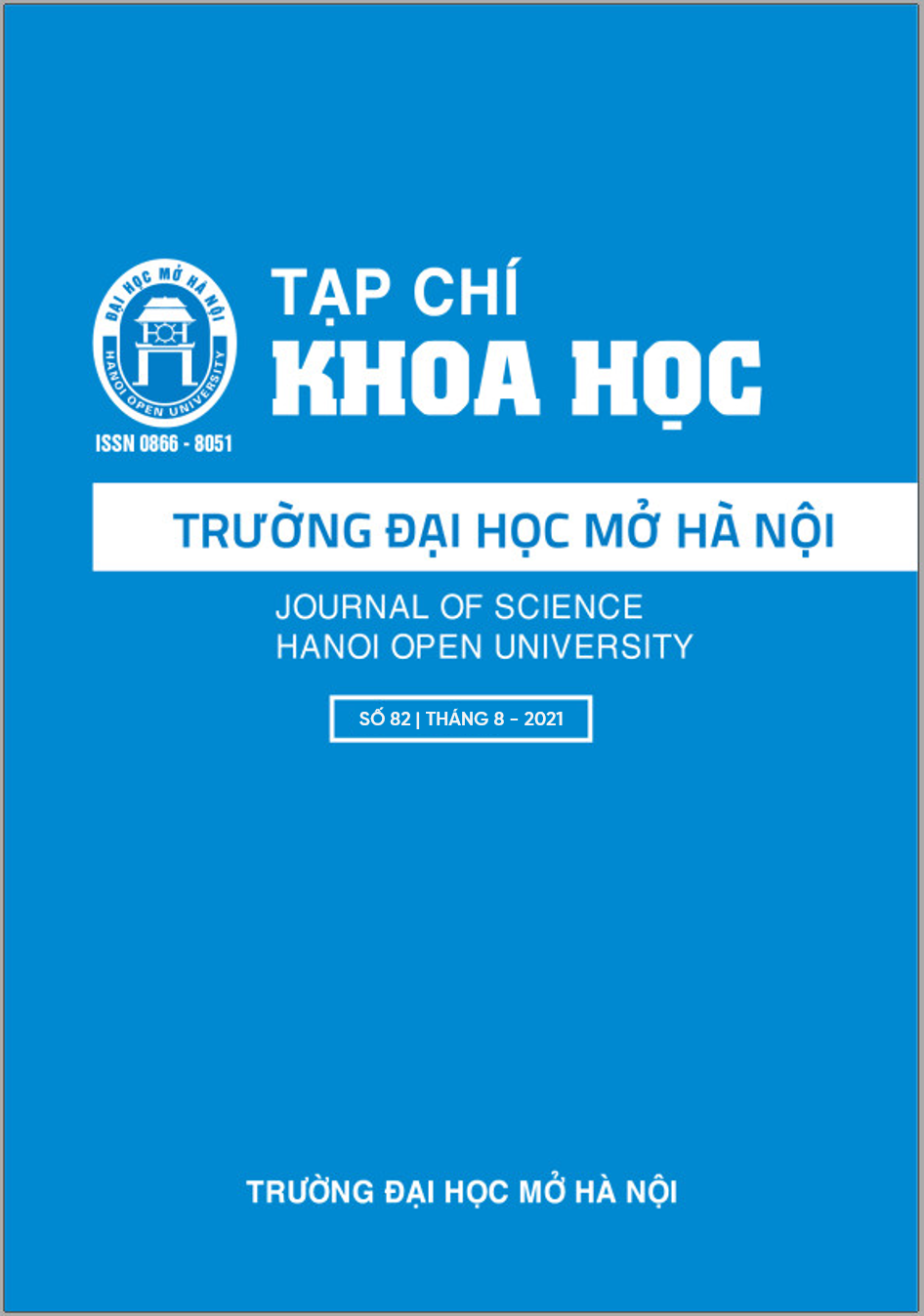A PROPOSAL FOR THE EFFECTIVE STYLES OF LEARNING PROFESSIONAL ENGLISH AT FACULTY OF TOURISM – HANOI OPEN UNIVERSITY
Từ khóa:
learning styles, professional English for tourismTóm tắt
The purpose of the study is to provide the basis for the students at Faculty of Tourism, Hanoi Open University (FOT-HOU) to identify their individual learning styles, thereby finding appropriate directions to improve their styles of learning professional English for tourism. The subjects of the study were 205 students of K25 and K26, divided into three groups of academic performance: excellent, good and average. Via a survey based on the questionnaire of Honey & Mumford (2000) and the self-esteem scale of Bloom (2001), the main learning styles of students in all three groups were analyzed and the effectiveness of those styles was also measured. The results have determined that the effective style for learning tourism English at FOT-HOU is the combined transformation of all four learning styles (theory, practice, reflection, and reality). A number of solutions to help the students approach and improve their self-study capacity for learning tourism English in the most effective way have been proposed as well.
Tài liệu tham khảo
[1] Lâm Quang Đông, (2011), “Tiếng Anh chuyên ngành – một số vấn đề về nội dung giảng dạy Tiếng Anh chuyên ngành – Một số vấn đề về nội dung giảng dạy”, Số 11 (193), Tạp chí Ngôn ngữ và đời sống
[2]Phạm Diệu Ly, (2018), “Nghiên cứu điển mẫu và vai trò của phương pháp Project – based learning trong giảng dạy tiếng Anh tại Khoa Du lịch – Trường Đại học Mở Hà Nội”, số 49 T11-2018, Tạp chí khoa học Viện Đại học Mở Hà Nội.
[3] Dudley-Evans. T, (1998), “Research perspectives on English for academic purposes”, Cambridge Universiti Press.
[4] Gomez, M. (2016). Project-Based Leaning.
Universidad de Valladolid.
[5] Honey, P. and Mumford. A,(1992), “Manual of Learning Styles”, Peter Honey Publications.
[6] Honey, P. and Mumford. A, (2000), “The Learning Styles Questionnaire”, Peter Honey Publications.
[7] Lorin W. Anderson, David Krathwonhl, (2001), “A Taxonomy for Learning, Teaching, and Assessing: A Revision of Bloom’s Taxonomy of Educational Objectives”. Educational Horizons.
[8] Rose C (1998). Accelerated learning. Chaminade college, P1.
[9] Witkin, H. A., Dyk, R. B., Fattuson, H. F., Goodenough, D. R., & Karp, S. A. (1962). Psychological differentiation: Studies of development. Wiley.
